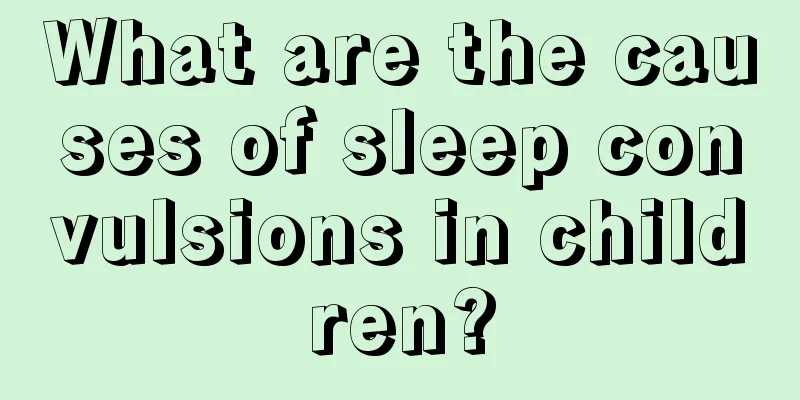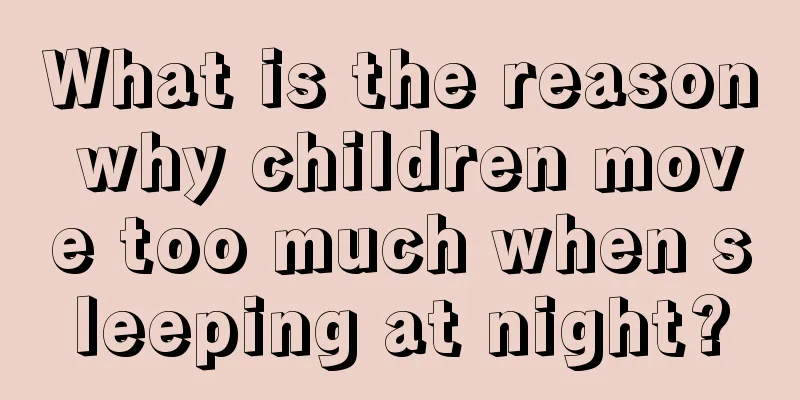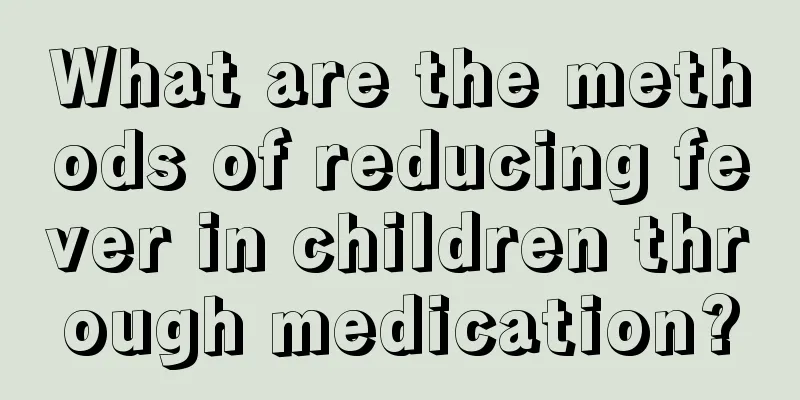What are the causes of sleep convulsions in children?

|
Sleep convulsions are currently the most common symptom in children. Generally speaking, when a child has a convulsion while sleeping, this situation will not only affect the child's normal rest, but also cause the child to cry constantly. Therefore, many parents are helpless when taking care of their children when they have sleep convulsions. Convulsion, commonly known as convulsion, is a common emergency in infancy and one of the most important causes of death in the perinatal period, and is more common in premature infants. During a convulsion, the child suddenly loses consciousness, his eyes roll up, and he stares or squints; the facial muscles or limb muscles become rigid, hard, spasmodic, or twitching constantly, and a single attack can last from a few seconds to several minutes. Frequent or persistent seizures may be life-threatening or leave children with serious sequelae, affecting their intellectual development and health. The causes of infantile seizures can be divided into two categories: infectious and non-infectious. 1. Infectious factors: There are infections of the central nervous system and infections outside the central nervous system. Infections of the central nervous system include various encephalitis and meningitis; infections outside the central nervous system include sepsis, toxic dysentery, pneumonia, etc. There is also a type of convulsion caused by high fever, called febrile convulsion. For example, children under 3 years old who suffer from respiratory infections or other diseases may also experience convulsions in the early stages of a high fever. In addition to convulsions caused by infection, non-infectious causes such as metabolic, toxic, and organ diseases can also cause convulsions in infants. 2. Metabolic factors: hypocalcemia, hypoglycemia, vitamin B1 or vitamin B6 deficiency, hyponatremia, hypomagnesemia, etc. 3. Toxic factors: Excessive use of central nervous system stimulants, such as aminophylline, antihistamines, etc., and poisoning by pesticides 1605, 1059, dichlorvos, trichlorfon, and malathion can also cause convulsions. 4. Organic disease factors: There are brain diseases such as brain trauma, cerebral palsy, and incomplete brain development, as well as diseases caused by heart, liver, kidney, etc. Common ones are: Febrile convulsions: The baby's brain is not fully developed, and when the body temperature rises above 39°C, especially close to 40°C, convulsions are very likely to occur. Hypocalcemic convulsions: When an infant's blood calcium is too low, nerve excitability increases, making tetany more likely. In severe cases, it may also be accompanied by laryngeal spasm, which is very dangerous. Sequelae of birth trauma: Infants with intracranial injury and hypoxic-ischemic encephalopathy during delivery may experience convulsions. What are the causes of sleep convulsions in children? Generally speaking, convulsions in children while sleeping are mainly related to factors such as cerebral palsy, hypoglycemia, organ infection, fever and intracranial injury. At this time, parents also need to pay more attention to the health of children who often have sleep convulsions, and take their children to see a doctor in time if necessary. |
<<: What to do if mixed feeding causes constipation
>>: What are the dangers of precocious puberty in children?
Recommend
Causes of Nosebleeds
Nosebleed, also known as epistaxis, is a problem ...
Can a three-year-old baby brush his teeth?
As babies grow up, parents need to teach them var...
What should children eat if they have excessive dampness in their bodies?
To address the problem of excessive moisture in t...
Can children watch TV?
Every household has a TV. The advent of televisio...
Can a newborn be rocked?
In our lives, many mothers will rock their babies...
What should children eat to improve their physical fitness?
Some children are born with good physical constit...
Treatment for yellow eyes in babies
Yellowing of babies' eyes causes great distre...
Is it okay for a 2 year old to go to kindergarten?
Many parents always send their babies to kinderga...
What medicine should children take if they catch a cold and have a fever?
The weather outside is sometimes good and sometim...
What causes children to be weak and sweat excessively?
Children's physical condition is definitely w...
What should I pay attention to when my 1-year-old baby has bronchial pneumonia?
Bronchopneumonia in one-year-old babies is what w...
Children's mouth blisters
Most babies usually don't like to eat vegetab...
What to do if your child sweats while sleeping
Sweating is a normal physiological reaction of th...
How to care for babies infected with rotavirus
Rotavirus has a very obvious seasonality, which i...
What are the symptoms of neonatal hemangioma?
Many newborn babies will have hemangioma, a benig...









